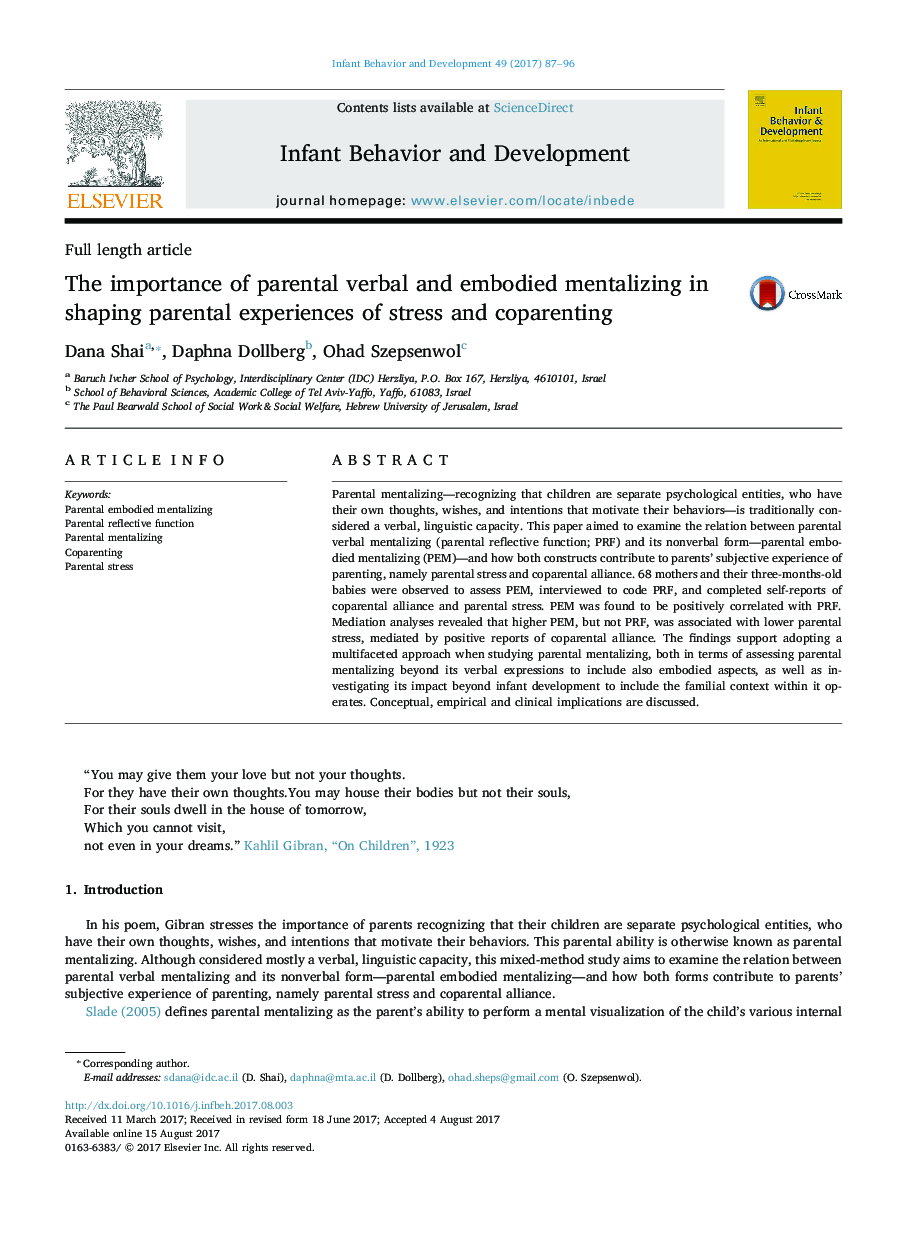| Article ID | Journal | Published Year | Pages | File Type |
|---|---|---|---|---|
| 5039757 | Infant Behavior and Development | 2017 | 10 Pages |
â¢Parental mentalizing may have verbal and embodied (PEM) factors.â¢Examining how parental mentalizing relates to parental stress and coparenting.â¢Verbal and embodied facets of parental mentalizing were associated.â¢Higher PEM was associated with lower parental stress mediated by coparenting.â¢Findings suggest that PEM is related to parenting experiences
Parental mentalizing-recognizing that children are separate psychological entities, who have their own thoughts, wishes, and intentions that motivate their behaviors-is traditionally considered a verbal, linguistic capacity. This paper aimed to examine the relation between parental verbal mentalizing (parental reflective function; PRF) and its nonverbal form-parental embodied mentalizing (PEM)-and how both constructs contribute to parents' subjective experience of parenting, namely parental stress and coparental alliance. 68 mothers and their three-months-old babies were observed to assess PEM, interviewed to code PRF, and completed self-reports of coparental alliance and parental stress. PEM was found to be positively correlated with PRF. Mediation analyses revealed that higher PEM, but not PRF, was associated with lower parental stress, mediated by positive reports of coparental alliance. The findings support adopting a multifaceted approach when studying parental mentalizing, both in terms of assessing parental mentalizing beyond its verbal expressions to include also embodied aspects, as well as investigating its impact beyond infant development to include the familial context within it operates. Conceptual, empirical and clinical implications are discussed.
